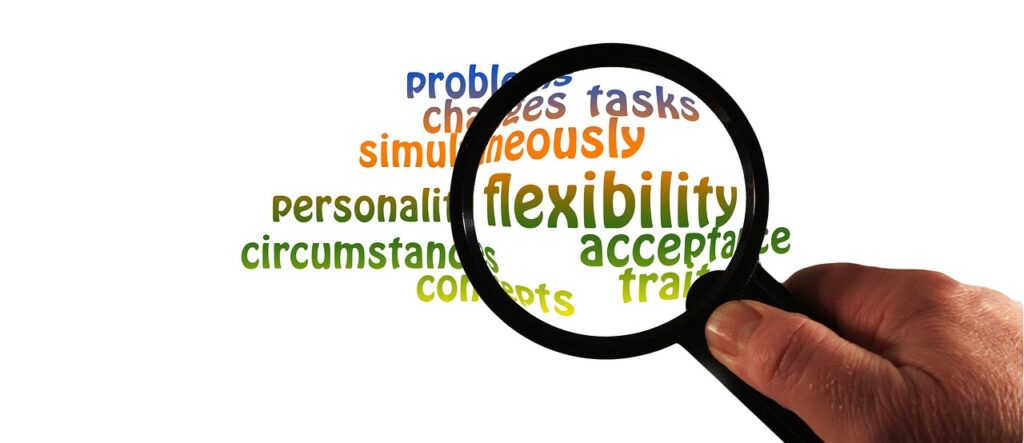Transferable skills play a crucial role in today’s ever-changing job market. Why? They are a set of abilities that can be applied across different industries and job positions. These versatile skills are essential for individuals seeking career growth and adaptability in the face of change.
Regardless of your field, transferable skills offer immense value. They make you more marketable, improve your job prospects, and demonstrate your potential to employers. Moreover, they empower you to navigate career transitions with confidence, ensuring long-term success.
At Pathways to Advancement, our focus is on providing valuable information and assistance to help individuals develop these vital skills. We are committed to supporting your education and career journey, offering expert advice and resources to help you reach your career goals. So, let’s dive into the top transferable skills you can use in any job.
Table of Contents
- Communication Skills
- Problem-solving Skills
- Teamwork and Collaboration
- Adaptability and Flexibility
- Time Management and Organization
- Emotional Intelligence
- Conclusion
Communication Skills
Effective communication is the foundation of success in any job. It’s not just about speaking or writing well. It encompasses several key aspects:
Verbal Communication
Clear and concise verbal communication allows you to convey your ideas, express your needs, and collaborate with others. It’s essential to be articulate and use appropriate language, tone, and pitch to engage your audience.
Written Communication
Well-crafted emails, reports, and other written materials are vital in today’s digital age. Good written communication skills ensure that your message is understood, avoiding confusion and misinterpretation.
Active Listening
Active listening is more than just hearing. It’s about comprehending, processing, and responding to what others say. By practicing active listening, you demonstrate respect, empathy, and a genuine interest in others’ perspectives.
Non-Verbal Communication
Body language, facial expressions, and gestures can speak volumes. Being aware of your non-verbal cues, as well as interpreting those of others, can enhance your overall communication and help build strong professional relationships.
Honing these communication skills is crucial for success in any job, as they foster productive interactions, teamwork, and a positive work environment.

Problem-solving Skills
Every job comes with challenges. How you approach and overcome them sets you apart from others. Strong problem-solving skills are invaluable in any profession. Let’s delve into the key components:
Critical Thinking
Effective problem solvers possess the ability to analyze situations, identify issues, and evaluate possible solutions. Critical thinking promotes objectivity and a thorough understanding of problems, enabling well-informed decisions.
Analytical Reasoning
Analytical reasoning involves breaking complex issues into smaller, manageable parts. By examining each element, you can identify patterns, trends, and relationships, leading to strategic and logical solutions.
Creativity
Innovation and imagination are essential for out-of-the-box thinking. Creative problem solvers can generate unique ideas, adapt to new situations, and find unconventional solutions when traditional methods fall short.
Decision-making
Strong decision-making skills involve weighing the pros and cons of various options, considering potential consequences, and choosing the most appropriate course of action. Effective decision-makers are decisive, confident, and accountable for their choices.
Cultivating these problem-solving skills will not only enhance your performance in your current job but also increase your adaptability and value in any future role.

Teamwork and Collaboration
Working well with others is crucial in today’s interconnected world. No matter your role, effective teamwork and collaboration skills are highly valued by employers. Let’s explore the key aspects:
Interpersonal Skills
Strong interpersonal skills allow you to build and maintain positive relationships with colleagues. This includes active listening, empathy, and the ability to communicate clearly and respectfully. These transferable skills are essential for fostering a collaborative work environment.
Working Well with Diverse Groups
Today’s workplaces are increasingly diverse, bringing together people with different backgrounds, cultures, and perspectives. Embracing diversity and demonstrating cultural competence helps create an inclusive environment where everyone can contribute their unique talents and ideas.
Conflict Resolution
Disagreements are inevitable in any team. Effective conflict resolution skills involve addressing issues openly and respectfully, seeking common ground, and finding mutually beneficial solutions. This helps maintain a positive, productive work atmosphere.
Leadership
Leadership is not just for managers. Demonstrating initiative, taking responsibility, and guiding others toward a common goal are valuable qualities in any team member. Effective leaders inspire trust, motivate others, and contribute to a shared vision of success.
Developing these teamwork and collaboration skills will enhance your professional relationships and increase your value in any job.

Adaptability and Flexibility
In a rapidly changing world, adaptability and flexibility are essential traits for any professional. These transferable skills allow you to remain resilient and responsive to new challenges and opportunities. Let’s examine the key elements:
Embracing Change
Change is inevitable. Embracing it means being open to new ideas, processes, and technologies. Adaptable individuals can adjust their approach, learn quickly, and thrive in dynamic work environments.
Open-mindedness
Being open-minded involves considering different perspectives and being willing to reevaluate your beliefs and assumptions. This fosters a growth mindset and supports continuous learning and improvement.
Resilience
Being able to bounce back from setbacks and adapt to challenging situations is the definition of being resilient. It involves maintaining a positive attitude, managing stress, and finding ways to overcome obstacles.
Learning from Feedback
Embracing feedback, both positive and negative, helps you identify areas for improvement and develop new skills and strategies.
Cultivating adaptability and flexibility will prepare you for success in any job, equipping you with the tools needed to navigate change and seize new opportunities.

Time Management and Organization
Effective time management and organization are crucial for success in any job. These skills enable you to work efficiently, meet deadlines, and maintain a healthy work-life balance. Let’s explore the key components:
Prioritizing Tasks
Prioritizing tasks involves identifying the most important and time-sensitive work, focusing your efforts on what matters most. This helps increase productivity and ensure that critical objectives are met.
Managing Deadlines
Meeting deadlines is essential for maintaining credibility and trust with colleagues and clients. Effective time management involves setting realistic goals, breaking tasks into manageable steps, and tracking progress to ensure timely completion.
Multi-tasking
Multi-tasking is the ability to manage multiple tasks simultaneously. While not always ideal, it is sometimes necessary in fast-paced work environments. Successful multi-tasking requires focus, organization, and flexibility.
Attention to Detail
Meticulous attention to detail ensures accuracy and quality in your work. It involves thoroughly reviewing documents, double-checking calculations, and catching errors before they become problems.
Developing strong time management and organization skills will benefit you in any job, improving your efficiency and overall performance.
Emotional Intelligence
Emotional intelligence (EQ) is the ability to recognize, understand, and manage your own emotions, as well as empathize with the emotions of others. A high EQ can greatly benefit your professional relationships and success. Let’s discuss the key components:
Self-awareness
Self-awareness is the foundation of emotional intelligence. It involves understanding your own emotions, strengths, weaknesses, and triggers. Developing self-awareness can improve decision-making, communication, and overall emotional well-being.
Empathy
Empathy is the ability to understand and share the feelings of others. It fosters supportive and compassionate relationships, promoting collaboration and teamwork.
Self-regulation
Self-regulation involves managing your emotions and impulses, rather than letting them control you. This skill helps maintain composure during stressful situations, resolve conflicts, and maintain a positive work environment.
Motivation
Internal motivation drives you to achieve your goals, even in the face of challenges. Emotionally intelligent individuals are self-motivated, resilient, and committed to their personal and professional growth.
Enhancing your emotional intelligence will not only improve your relationships but also contribute to your overall success in any job.
Key Takeaway
Transferable skills are the cornerstone of a successful and adaptable career. They equip you with the tools needed to excel in any job, regardless of industry or position. By prioritizing the development of these skills, you invest in your long-term professional growth and expand your horizons.
Continuous learning and self-improvement are essential for staying competitive in today’s job market. Embrace the journey, and remember that developing these transferable skills is an ongoing process that will serve you well throughout your career.
At Pathways to Advancement, we are committed to supporting your growth in these crucial areas. Through expert guidance, resources, and education solutions, we aim to help you reach your goals and thrive in any job. Embrace the opportunity to learn, grow, and excel, knowing that Pathways to Advancement is by your side, every step of the way.



